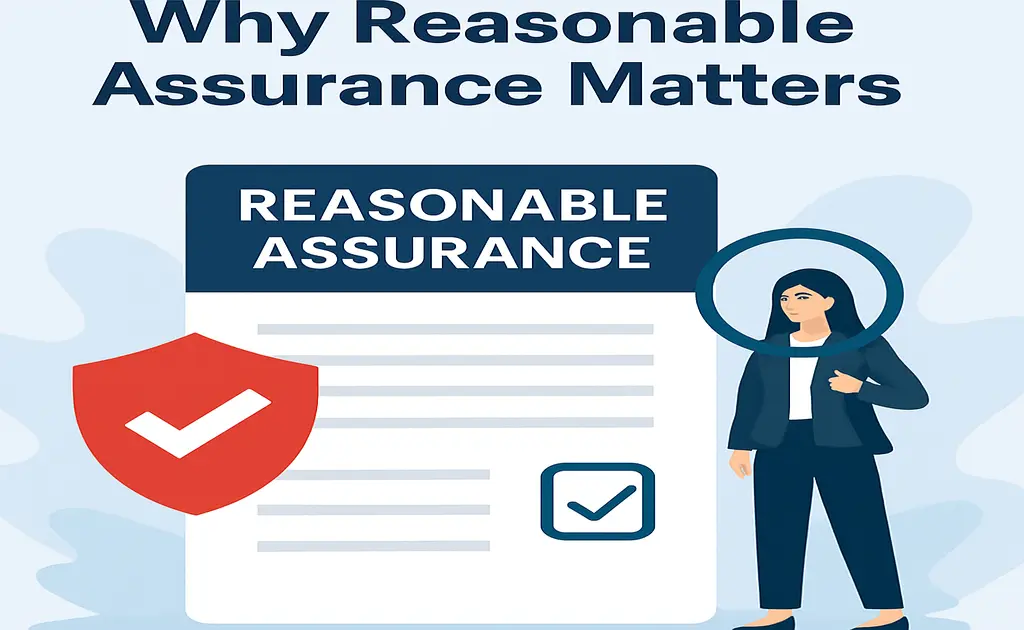The high degree of confidence auditors aim to achieve when examining financial statements is known as reasonable assurance. It means that auditors have gathered enough information to determine that there are no major misstatements in the financial accounts, either due to fraud or error. However, because audits have intrinsic constraints including sampling risks and the possibility of human mistake, it does not indicate complete confidence.
In order to build trust and reliability in financial reporting, reasonable assurance is essential. The reliability and absence of significant inaccuracies in financial statements are ensured by reasonable assurance. Reasonable assurance is important for the five reasons listed below:
- Enhances Stakeholder Confidence: Reasonable assurance gives stakeholders a solid guarantee that financial statements are presented truthfully. When making decisions, one can rely on the information to be truthful and trustworthy.
- Identifies Fraud and Errors: To obtain reasonable assurance, extensive testing and the collection of relevant data are required. By doing this, you can identify mistakes, possible fraud, and significant misstatements in the financial books.
- Enhances Financial Transparency: By offering a high degree of confidence, reasonable assurance enhances the financial statements’ transparency. Maintaining the legitimacy and reputation of a business depends on this degree of openness.
- Assures Legal Compliance: It helps firms adhere to legal requirements. Corporate compliance with financial reporting standards is ensured by statutory audits, which need a reasonable level of assurance.
- Promotes Better Decision Making: Management and stakeholders are better able to make decisions when accurate financial figures are used. Reliability and the absence of significant errors are guaranteed by reasonable assurance.
